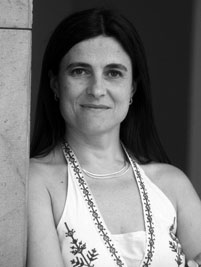
Amparo Acker-Palmer
Goethe University Frankfurt am Main
Germany
EMBO | EMBL Symposium
This conference will take place at EMBL Heidelberg, with the option to attend virtually. Please see EMBL’s COVID-19 safety policy for testing and other requirements if attending the on-site event.
Neurovascular biology is a young, emerging field that aims to unravel the molecular communication between the nervous system and the vasculature. Both the nervous system and the vascular system share striking conceptual similarities in the assembly of cellular networks through guided growth and branching processes. Vascular and neural cells work together to form a number of functional tissue compartments. Endothelial cells, certain mural support cells (i.e., pericytes), astrocytes and neurons assemble the neurovascular unit, which establishes the blood-brain and blood-retina barriers. In fact, many of the most debilitating neurodegenerative diseases and cognitive decline involve disruption of the neurovascular unit or compromised vascular function in the nervous system. It has become increasingly clear that the endothelium and mural support cells function go beyond nutrient supply and are instructive and structurally required to allow nervous system function.
In this symposium, we bring together researchers from vascular biology and neurobiology to foster interdisciplinary exchange and new emerging concepts on how vascular and nervous systems crosstalk to maintain organ homeostasis and function.

Goethe University Frankfurt am Main
Germany
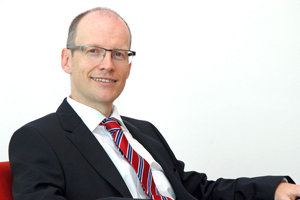
Max Planck Institute for Molecular Biomedicine
Germany
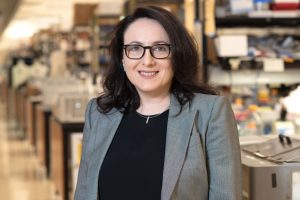
University of California, San Francisco
USA
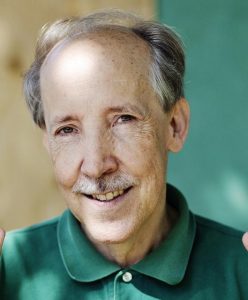
University of Helsinki
Finland
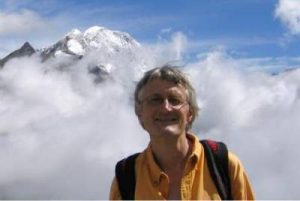
University College London
UK
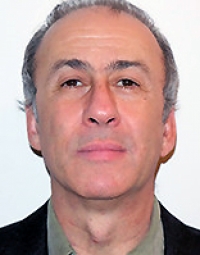
Institut de la Vision
France
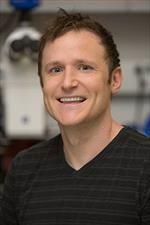
University of California, San Diego
USA
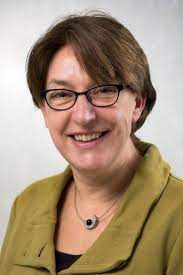
Amsterdam UMC
The Netherlands
(Virtual Speaker)
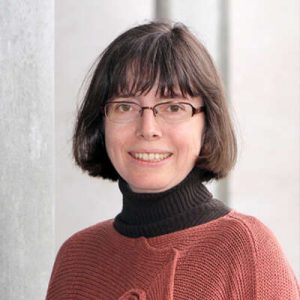
University of Basel
Switzerland
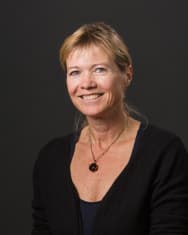
Yale School of Medicine
USA
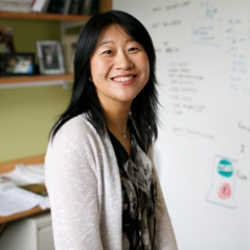
Harvard Medical School
USA
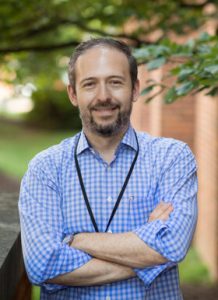
Washington University School of Medicine in St. Louis
USA
(Virtual Speaker)
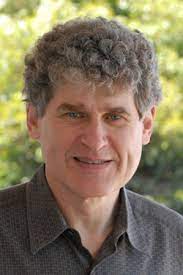
University of California, San Diego
USA
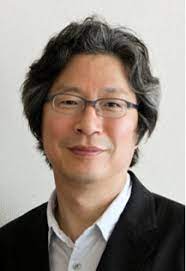
Institute for Basic Science
Republic of Korea
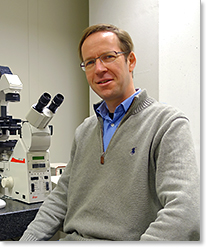
Karlsruhe Institute of Technology
Germany

National Heart, Lung and Blood Institute
USA
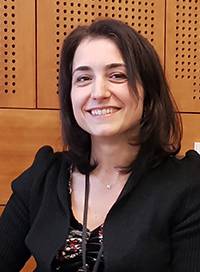
University College London
UK
(Virtual Speaker)
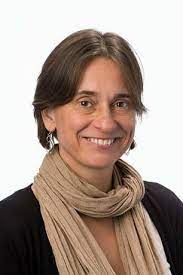
University College London
UK
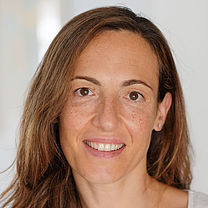
University of Bonn
Germany
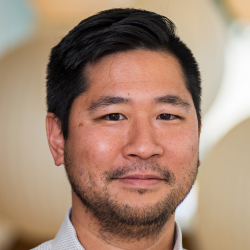
Seattle Children’s Hospital
USA
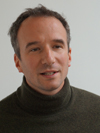
University of Brussels
Belgium

Goethe University Frankfurt am Main
Germany

Max Planck Institute for Molecular Biomedicine
Germany

Harvard Medical School
USA
Got something to say? Tweet it! #EESNeurovascular
| Time (Europe/Berlin) | Speaker |
|---|---|
| 12:00-13:30 | Registration and light refreshments |
| 13:30-13:40 | Opening remarks |
| 13:40-15:25 | Session 1 – Neurovascular signaling Chair: Amparo Acker-Palmer – Goethe University Frankfurt am Main, Germany |
| 13:40-14:10 | Molecular regulation of blood brain barrier function Anne Eichmann – Yale School of Medicine, USA Not available on demand |
| 14:10-14:25 | Short talk: Foxf2 maintains brain endothelial cell function via Tie2 signaling Martin Dichgans – Ludwig Maximilians University of Munich, Germany Not available on demand |
| 14:25-14:40 | Short talk: Vascular guidance configures barrier mesenchymal compartments in the regenerating nerve Ganesh Parameshwar Bhat – San Raffaele Scientific Institute, Italy |
| 14:40-14:55 | Short talk: Understanding brain vascular responses to insulin Nicole Sumargo – University of Tasmania, Australia |
| 14:55-15:25 | Function of neuro-vascular interactions in organ development Yoh-suke Mukouyama – National Heart, Lung, and Blood Institute, USA Not available on demand |
| 15:25-16:00 | Coffee break |
| 16:00-17:45 | Session 1 – Neurovascular signaling (continued) Chair: Anne Eichmann – Yale School of Medicine, USA |
| 16:00-16:30 | Cellular and molecular mechanisms controlling artery formation in the CNS Ralf H. Adams – Max Planck Institute for Molecular Biomedicine, Germany |
| 16:30-16:45 | Short talk: Involvement of JAM-C in the interaction between glioblastoma stem-like cells and brain endothelial cells Sara Rosinska – University of Nantes, France |
| 16:45-17:00 | Short talk: Premature vascularization of motor neuron columns results in aberrant motor neuron development Ricardo Vieira – Heidelberg University, Germany |
| 17:00-17:15 | Short talk: Tanycytic VEGF receptor signaling in the blood-hypothalamus barrier: a new player in the communication between the brain and the periphery Ines Martinez-Corral – National Institute for Health and Medical Research (Inserm), France Not available on demand |
| 17:15-17:45 | Brain and retina vascularisation in health and disease Christiana Ruhrberg – University College London, United Kingdom Not available on demand |
| 17:45-19:30 | Poster session 1 (odd numbers) Poster numbers |
| 19:30-21:00 | Dinner |
| 21:00-22:00 | After dinner drinks with live music |
| Time (Europe/Berlin) | Speaker |
|---|---|
| 09:15-10:45 | Session 2 – Brain lymphatics Chair: Gou Young Koh – Institute for Basic Science, Republic of Korea |
| 09:15-09:45 | Virtual talk: Neuro-immune events at the brain barriers Elga de Vries – Amsterdam UMC, The Netherlands Not available on demand |
| 09:45-10:00 | Short talk: Anatomical diversity of lyve-1 perivascular macrophages distribution in the mouse brain Guy Malkinson – Collège de France, France |
| 10:00-10:15 | Short talk: Postnatal development of the neurovascular unit is impaired in Megalencephalic leukoencephalopathy with subcortical cysts Martine Cohen-Salmon – Collège de France, France |
| 10:15-10:45 | Towards manipulation of brain lymphatic drainage pathways in CNS disease Kari Alitalo – University of Helsinki, Finland Not available on demand |
| 10:45-11:15 | Coffee break |
| 11:15-12:30 | Session 2 – Brain lymphatics (continued) Chair: Kari Alitalo – University of Helsinki, Finland |
| 11:15-11:45 | Defining vascular heterogeneity at CNS borders Gou Young Koh – Center for Vascular Research, South Korea |
| 11:45-12:00 | Short talk: Blood-brain barrier endothelial A20 protects from autoimmune neuroinflammation: a novel role for A20-regulated endothelial Icosl in immune cell trafficking Lisa Johann – Johannes Gutenberg University Mainz, Germany |
| 12:00-12:30 | Choroid plexus regulation of adult neural stem cells Fiona Doetsch – University of Basel, Switzerland Not available on demand |
| 12:30-14:00 | Lunch and Meet the speakers with: Anne Eichmann, Yoh-suke Mukouyama, Ralf H. Adams, Christiana Ruhrberg, Kari Alitalo, Gou Young Koh, Fiona Doetsch, David Attwell, Serge Charpak, and Andy Shih |
| 14:00-15:30 | Session 3 – Neurovascular coupling Chair: David Kleinfeld – University of California, San Diego, USA |
| 14:00-14:30 | Immune cell influences on the cerebral microvasculature in Alzheimer’s disease David Attwell – University College London, UK |
| 14:30-14:45 | Short talk: Bidirectional control of neurovascular coupling by pyramidal neurons Bruno Cauli – Institute of Biology Paris-Seine, France |
| 14:45-15:00 | Short talk: Engineering approaches to investigate the biophysical role of extracellular matrix in the neurovascular interface Nicholas Kurniawan – Eindhoven University of Technology, The Netherlands |
| 15:00-15:30 | The dynamic of brain oxygenation during neurovascular coupling Serge Charpak – The Vision Institute, France Not available on demand |
| 15:30-16:00 | Coffee break |
| 16:00-17:45 | Session 3 – Neurovascular coupling (continued) Chair: David Attwell – University College London, UK |
| 16:00-16:30 | Optical dissection of brain capillary function Andy Shih – Seattle Children’s Hospital, USA |
| 16:30-16:45 | Short talk: Cerebrovascular reactivity to hypercapnia and neurovascular coupling explore different vascular beds Marine Tournissac – The Vision Institute, France Not available on demand |
| 16:45-17:00 | Short talk: Regulation of blood flow patterns by oxytocin neurons through specialized neurovascular coupling dynamics Preethi Rajamannar – Weizmann Institute of Science, Israel |
| 17:00-17:15 | Short talk: An atlas of the post-natal cerebral vasculature Nicolas Renier – Paris Brain Institute, France |
| 17:15-17:45 | Competing forces shape the spatial pattern of pial vasomotor oscillations across cortex David Kleinfeld – University of California, San Diego, USA Not available on demand |
| 18:00 | Free evening |
| 18:30-20:00 | Optional: Heidelberg Old Town tour with an English speaking tour guide (registration required) |
| Time (Europe/Berlin) | Speaker |
|---|---|
| 09:15-10:45 | Session 4 – Blood-brain barrier Chair: Chenghua Gu – Harvard Medical School, USA |
| 09:15-09:45 | Vascular instructions on neuronal development Amparo Acker-Palmer – Goethe University Frankfurt am Main, Germany Not available on demand |
| 09:45-10:00 | Short talk: Development of the intra-neural vascularization and physio-pathological role of the blood-nerve barrier Isabelle Brunet – Collège de France, France Not available on demand |
| 10:00-10:15 | Short talk: Generating new in vitro 3D blood-brain barrier models to better understand cerebral malaria Maria Bernabeu – EMBL Barcelona, Spain |
| 10:15-10:45 | How does the blood-brain barrier regulate brain function and behavior? Richard Daneman – University of California, San Diego, USA Not available on demand |
| 10:45-11:15 | Coffee break |
| 11:15-12:30 | Session 4 – Blood-brain barrier (continued) Chair: Richard Daneman – University of California, San Diego, USA |
| 11:15-11:45 | Molecular mechanisms governing the blood brain barrier function Chenghua Gu – Harvard Medical School, USA |
| 11:45-12:00 | Short talk: Optimizing next-generation brain delivery platforms with in vitro blood-brain barrier models Roberto Villasenor Solorio – Roche Innovation Center, Switzerland |
| 12:00-12:30 | Mechanisms of neurovascular Wnt signaling Benoit Vanhollebeke – University of Brussels, Belgium Not available on demand |
| 12:30-14:00 | Lunch and Meet the speakers with: David Kleinfeld, Amparo Acker-Palmer, Richard Daneman, Chenghua Gu, Benoit Vanhollebeke, Katerina Akassoglou, Anju Vasudevan, Carmen Ruiz de Almodovar, and Ferdinand le Noble |
| 14:00-15:30 | Session 5 – Neurovascular pathology Chair: Benoit Vanhollebeke – University of Brussels, Belgium |
| 14:00-14:30 | The immunology of blood: unlocking the drivers for neurodegeneration Katerina Akassoglou – University of California, San Francisco, USA Not available on demand |
| 14:30-14:45 | Short talk: Exploring the role of FOXF2 in Small vessel disease (SVD) in a novel human iPSC-derived model of the neurovascular unit (NVU) Dominik Paquet – Ludwig Maximilians University of Munich, Germany Not available on demand |
| 14:45-15:00 | Short talk: Modeling ischemic stroke in a triculture neurovascular unit on-a-chip Arya Lekshmi Nair – Mimetas / Amsterdam UMC, The Netherlands |
| 15:00-15:30 | Virtual talk: Parenchymal Border macrophages regulate CSF flow Jonathan Kipnis – Washington University School of Medicine in St. Louis, USA |
| 15:30-16:00 | Coffee break |
| 16:00-17:15 | Session 5 – Neurovascular pathology (continued) Chair: Katerina Akassoglou – University of California, San Francisco, USA |
| 16:00-16:30 | The vascular origins of mental illness and new treatment strategies Anju Vasudevan – Huntington Medical Research Institutes (HMRI), USA |
| 16:30-16:45 | Short talk: Machine learning analysis of whole mouse brain vasculature to study neurovascular diseases Mihail Todorov – Ludwig Maximilians University of Munich, Germany |
| 16:45-17:15 | Virtual talk: Glioblastoma invasion: injury and neurodevelopmental programmes converge at the perivascular niche Simona Parrinello – University College London, UK Not available on demand |
| 17:15-19:00 | Poster session 2 (even numbers) Poster numbers |
| 19:00-21:00 | Conference dinner |
| 21:00-22:30 | Social event: science pub quiz |
| Time (Europe/Berlin) | Speaker |
|---|---|
| 09:15-10:15 | Session 6 – Vessel-neuronal structure Chair: Ralf H. Adams – Max Planck Institute for Molecular Biomedicine, Germany |
| 09:15-09:45 | Blood vessels and neural cells in the CNS: interactions and molecular crosstalk Carmen Ruiz de Almodovar – University of Bonn, Germany Not available on demand |
| 09:45-10:00 | Short talk: Push-pull signals from motor axons direct endothelial remodeling to ensure assembly of neuromuscular connectivity Dario Bonanomi – San Raffaele Scientific Institute, Italy |
| 10:00-10:15 | Short talk: Perivascular neurons direct three-dimensional vascular scaffold formation via piezo2-mediated contact Xin Duan – University of California, San Francisco, USA Not available on demand |
| 10:15-10:45 | Coffee break |
| 10:45-12:00 | Session 6 – Vessel-neuronal structure (continued) Chair: Ralf H. Adams – Max Planck Institute for Molecular Biomedicine, Germany |
| 10:45-11:00 | Short talk: Vascular Wnt5A orchestrates cerebellar neuronal architecture and circuitry Marta Parrilla Monge – Goethe University Frankfurt am Main, Germany Not available on demand |
| 11:00-11:15 | Short talk: Obesity as new platform to study neurovascular topology Marc Schneeberger Pane – Yale University, USA |
| 11:15-11:45 | Organotypical features of spinal cord vascularisation and repair Ferdinand le Noble – Karlsruher Institut für Technologie, Germany Not available on demand |
| 11:45-12:00 | Closing remarks and poster prize |
| 12:15 | Packed lunch and departure |
| 12:30 | Bus to ISG Hotel and hotels downtown |
| 12:45 | Optional: Shuttle bus to Frankfurt Airport (Terminal 1) Tickets can be purchased during the conference for 25 EUR with credit card only |
On-site registration fees include admission, conference materials, COVID-19 safety measures, meals and coffee breaks. Participants are expected to book and pay their own accommodation and travel expenses.
Virtual registration fees include access to all of the talks (livestreamed and on demand) and facility to submit questions.
| On-site Academia | €700 |
| On-site PhD Student | €600 |
| On-site Industry | €900 |
| Virtual Academia | €175 |
| Virtual PhD Student | €125 |
| Virtual Industry | €225 |
NO visa support letters will be issued until payment of the registration fee is confirmed.
Accredited journalists may be eligible to register for complimentary press registration. Registrants may be required to provide accreditation or equivalent proof of press membership after registration. Please contact Lina Nikolajeva for more information. Please note that we do not offer complimentary registrations for editors of scientific journals.
Registration will be on a first-come first-served basis. Your place can only be confirmed after payment of the registration fee. If you are added to our waiting list, please consider taking advantage of our offerings to participate virtually.
On-site participants: Types of payments accepted are international bank transfers and credit card payments.
Virtual participants: We are only able to accept card payments. In exceptional cases we can accept bank transfers. Please contact events@embl.de for details.
Only registered participants attending the on-site event are eligible to submit an abstract. Abstracts will not be accepted from virtual participants.
After you have logged in and successfully registered, you will receive an email asking you to submit your abstract. Click on the link provided and enter your abstract in the text box provided. Alternatively you can submit your abstract by clicking on the link on the confirmation page directly after registering. The same login credentials are used for both processes.
Please note:
Title: The title should not exceed 20 words. Only the first word of the title should start with a capital letter and the rest of the title should be in lowercase.
Authors and affiliations: Please fill in the author’s details as requested in the online form. The compulsory details are: First Name, Last Name, Organisation Name (Affiliation or Company), Country and Email. Mark only one author as the role of First author and please don’t forget to indicate who will be presenting. The order of the authors will be listed as follows: First Author, Co-First Author (alphabetically if multiple), co-author(s) (in the order added by the submitter).
Presentation types: When submitting your abstract, you can apply for an oral or poster presentation. A selection process will take place with the results announced 2-3 weeks after the abstract submission deadline.
Please check our FAQs pages for further information on how to submit an abstract.
Limited financial assistance is provided by the EMBL Advanced Training Centre Corporate Partnership Programme and EMBO in the form of both registration fee waivers and travel grants. Availability is limited to participants attending on-site events in Heidelberg and will be indicated during the abstract or motivation letter submission process.
Your place in the meeting is only confirmed by paying the registration fee, which is mandatory even when receiving a fee waiver.
The fee waiver will cover the registration sum that you have paid to attend the course or conference.
The travel grant will cover the cost of travel (airfare, train, bus, taxi, accommodation, visa, and/or registration fees*) and is provided up to specified caps which are normally as follows:
– up to €400 for participants travelling to an EMBL Course, EMBL Conference or EMBO|EMBL Symposium from within Europe.
– up to €1000 for participants travelling to an EMBL Course, EMBL Conference or EMBO|EMBL Symposium from outside Europe.
– up to €500 for any participant travelling to an EMBO Practical Course or EMBO Workshop.
– up to €1000 for any participant working in Chile, India, Singapore or Taiwan travelling to an EMBO Practical Course or EMBO Workshop.
*Registration fees are only covered for EMBO Practical Courses or EMBO Workshops
The organisers may reduce the grant cap to accommodate more participants. Recipients will be notified of their travel cap amount when they are informed of the outcome of their application. Original receipts must be provided with your signature for all costs incurred within two months of completion of travel. Scanned copies cannot be accepted.
You may apply for financial assistance when submitting your abstract for conferences. In your application, you will be asked to answer questions regarding why your lab cannot fund your attendance and how your attendance will make a difference to your career. Application for financial support will not affect the outcome of your registration application.
The scientific organisers will select the recipients of all financial assistance during the motivation letter or abstract selection process. Results will be announced approximately 6-8 weeks before the event start date, however for some events this may be delayed. Selection results do not impact your admission to the meeting. Selection is based on your current work or study location, the reasons for needing financial support and the impact this event will have on your career.
Costs will be reimbursed after the meeting only once a reimbursement form and original receipts (from travel costs) have been received.
See our list of external funding opportunities and information on attending a conference as an event reporter.
For further information about financial assistance please refer to the FAQ page.
Accommodation is not included in the conference registration fee.
As further changes in our events are possible due to COVID-19, you should book flights, trains and hotels with flexible options and favourable cancellation conditions.
The hotels below have rooms on hold for participants until 6 October 2022, in some cases at special rates. Please quote the booking code EES22-11 and confirm the exact price of the room with the hotel directly.
Conference shuttle buses are free of charge for participants, and depart from designated bus stops near the hotels to EMBL and back, mornings and evenings.
Download the conference bus schedule here.
The bus stops for this conference are:
View Conference shuttle bus stops and hotels in a larger map. Please note that not every bus stop will be used for every event.
Address: EMBL, Meyerhofstraße 1, 69117 Heidelberg, Germany. For further information on getting to EMBL Heidelberg visit Public Transportation to the Venue. For information about accommodation and local transportation please refer to the FAQ page.
All meals and coffee breaks are included in the registration fee. Our catering staff will prepare a wide variety of vegetarian meals, meat and fish dishes, soups, pasta, fresh fruit and vegetables, as well as a variety of desserts.
Please wear your badge at all times when serving yourself.
No food or drinks are allowed in the auditorium.
There are lockers available next to the stairs leading down into the Auditorium. You will find some of those equipped with sockets to charge your smartphone/tablet etc.
In most places the electricity is 220 volts AC (50 cycles). An adaptor and a plug that fits the German socket may be needed for your appliances/laptop (i.e. American, Japanese, etc.). A USB charging station for electronic devices is available at the registration desk.
EMBL Merchandise is available on Mon – Thu (9 am – 12 pm). If you are interested in purchasing an EMBL souvenir (products presented in the glass display in the registration area), please ask at the registration desk for more information.
Please read EMBL’s COVID-19 safety policy for on-site events.
Do not smoke in any EMBL building.
Eating and drinking is prohibited in the Auditorium and all laboratories.
Do not enter any restricted areas or the laboratories unless instructed to do so.
If first aid is required …
In case of fire …
Beyond first aid…
Please remember to bring your own medication, if needed, to the conference. Note that the next pharmacy is a 4-minute drive from the EMBL, but for many medications you will be required to see a doctor to get a prescription.
Ensure in advance that your medical insurance will cover you during your visit in the event that you do need to see a doctor while in Heidelberg. In any case, the EMBL Course and Conference Office will assist you to get to the pharmacy and a doctor of your choice if necessary.
Wi-Fi is available everywhere on the premises (no password required), just log on to ATC-Guest. The eduroam network (secure, world-wide roaming access service developed for the international research and education community) is also available.
‘’Lost and Found’’ are kept at the registration desk until the end of the conference.
There are lockers available on-site to store your luggage, which require a 2 EURO coin to operate. There is another luggage room on level E0, which is free to use but remains unlocked during the conference.
There is a nursing room available in the ATC Rooftop Lounge on level A29.
During the conference an EMBL Photographer may be taking photographs. If you would not like to appear in these, please inform the photographer or a member of the Course and Conference Office.
We can help printing your boarding passes/train ticket. Please send it to events@embl.de and collect your print-outs at the registration desk.
There is a room for prayer, mediation and yoga located on level E0 behind the Auditorium. Please be respectful of other participants using the room.
A variety of activities in Heidelberg can be found on the website of Heidelberg Marketing.
During the event we provide conference shuttle buses to and from EMBL. In addition, there is the public bus 39A that serves the EMBL campus and taxis can be easily booked at any time. Information on the conference shuttle buses can be found on the individual event website and more detailed information on travelling to EMBL can be found on our Travel Information page.
| English | German |
|---|---|
| Hello | Hallo |
| Goodbye | Auf Wiedersehen |
| Good morning | Guten Morgen |
| Good afternoon | Guten Tag |
| Good evening | Guten Abend |
| Good night | Gute Nacht |
| I’m sorry | Tut mir leid |
| Excuse me… | Entschuldigen Sie |
| How are you? | Wie geht’s? |
| I’m fine thanks. And you? | Mir geht es gut , danke, und dir/Ihnen? |
| What is your name | Wie heisst du? Wie heissen Sie? |
| My name is | Ich heisse |
| Do you speak English | Sprechen Sie Englisch? |
| I don’t understand | Ich verstehe nicht |
| Please speak more slowly | Können Sie bitte langsamer sprechen |
| Thank you | Danke schön |
| Where is the toilet? | Wo ist die Toilette? |
| Please call me a taxi | Bitte rufen Sie mir ein Taxi |
| How do I get to….? | Wie komme ich zum/zur…..? |
| A beer/two beers, please | Ein Bier/zwei Bier bitte |
| A glass of red/white wine please | Ein Glas Rot/Weisswein bitte |
| The menu, please | Die Speisekarte, bitte |
| Is there a local speciality? | Gibt es eine Spezialität aus dieser Gegend? |
| I’m Vegetarian | Ich bin Vegetarier |
| It was delicious | Es war hervorragend |
| The bill, please | Die Rechnung, bitte |
| I have a headache | Ich habe Kopfschmerzen |
| I have a sore throat | Ich habe Halsschmerzen |
| My stomach hurts | Ich habe Magenschmerzen |
| I’m allergic to | Ich bin allergisch gegen |
| I need a doctor who speaks English | Gibt es einen Arzt, der Englisch spricht? |
Please note that only on-site participants are able to submit abstracts and participate in the poster sessions.
We are using an event platform for this conference. More information about the platform will be shared ahead of the conference.
Additional information can be found in our Code of Conduct.
It is important to stay healthy and move around, especially when you are attending an event virtually. We have put together a few coffee break stretches and yoga videos in the conference platform for you to enjoy during the event.
Please use the Q&A function in the event platform.
If you have any other questions, you can go to the Help Desk in the event platform. Click on ‘more’ on the top menu and click Help Desk.
The programme is planned based on the Europe/Berlin time zone, unless otherwise stated. Please take your time zone into consideration when planning your attendance.
Please find additional information including FAQs, terms and conditions, COVID-19 safety policy and travelling to EMBL on our Information for Participants page.
COVID-19 information for on-site events at EMBL Heidelberg can be found in our COVID-19 FAQs.
Bronze sponsor
Media partners
EMBO Journal, an EMBO Press journal
International Union of Biochemistry and Molecular Biology
Open Biology, a Royal Society journal
Sponsorship opportunities
We offer a variety of event sponsoring possibilities, with the flexibility to select a set sponsorship package or combine individual sponsorship options to suit your event budget. Discounts are available for companies sponsoring multiple events at EMBL Heidelberg. View other conferences, or contact sponsorship@embl.de for further information.
If you are interested in becoming a media partner of this event, please visit our media partnerships webpage.
EMBO | EMBL Symposia promote scientific communication and collaboration in the European research area. They provide scientists with a platform to discuss and exchange ideas on forward-looking topics and new developments in the life sciences.
Topics emphasise upcoming developments and the interdisciplinary nature of related fields. Jointly funded and organised by EMBO and EMBL – and complementary to their respective courses, workshops, and conference programmes – the symposia promote scientific communication and collaboration.
All symposia are held in the EMBL Advanced Training Centre (ATC) in Heidelberg, Germany, or virtually.
Want to let others know you’re attending this event? Take a look at our shareable media and feel free to use them in your social media channels or presentations.
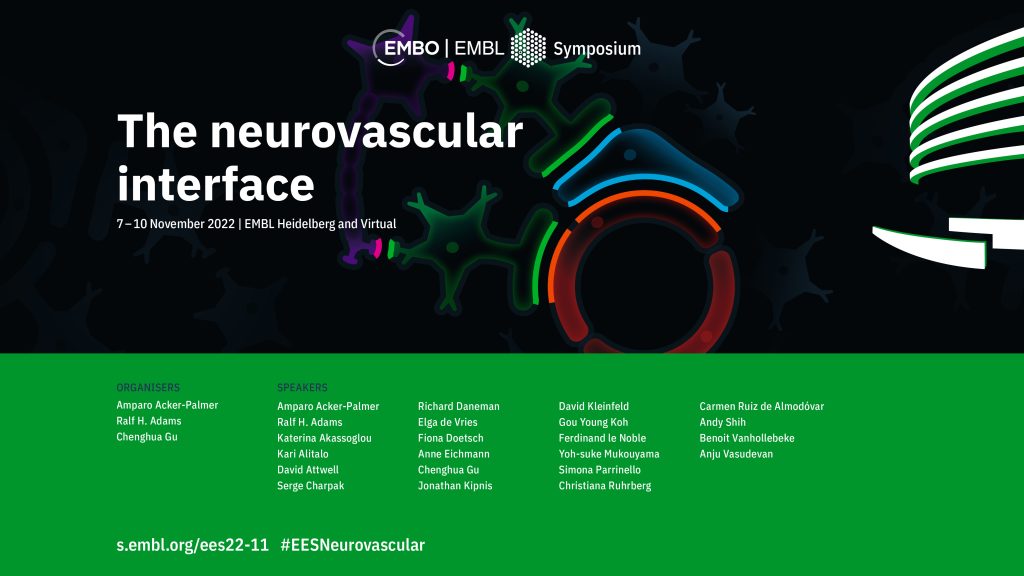

Date: 7 - 10 Nov 2022
Location: EMBL Heidelberg and Virtual
Venue: EMBL Advanced Training Centre
Deadline(s):
Abstract submission: Closed
Registration (On-site): Closed
Registration (Virtual): Closed
Organisers:
Contact: Lina Nikolajeva